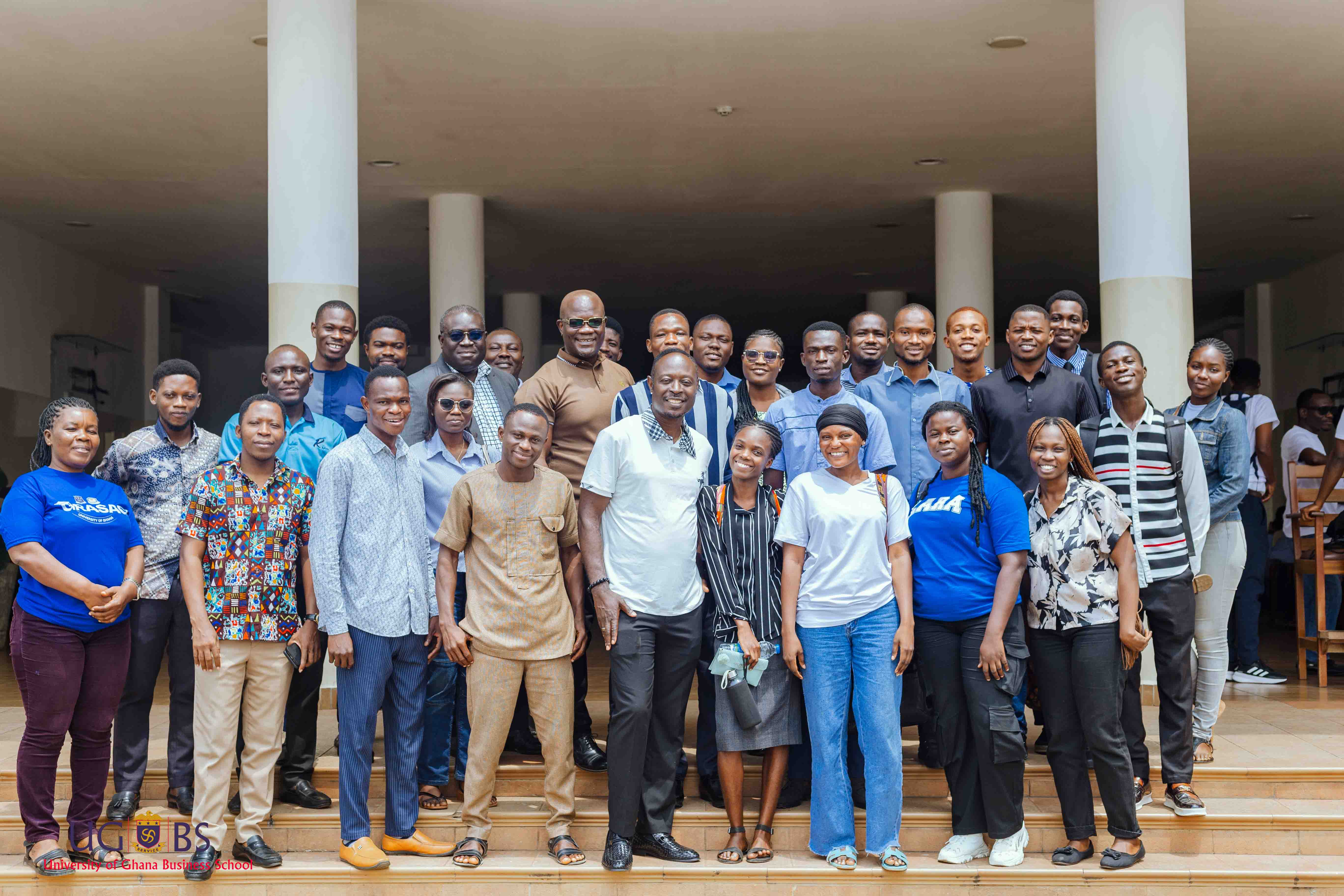
UGBS Department of Accounting Holds Two-Day Workshop for Undergraduate and Graduate Students
The Department of Accounting at the University of Ghana Business School (UGBS) organised a two-day workshop for undergraduate and graduate students studying accounting. The event took place on 28th and 29th July 2025 at the R.S. Amegashie Auditorium and the Graduate Building, respectively. The workshop aimed at equipping students with both practical and scholarly accounting skills and was facilitated by Prof. Akwasi Ampofo, Associate Professor at Springfield College, Massachusetts, USA. He delivered lectures on Computerised Accounting using QuickBooks and Qualitative and Quantitative Research Methods in the Age of AI: A Review of Selected Publications.
According to Prof. Mohammed Amidu of the Department of Accounting, Prof. Ampofo was invited to provide students with relevant skills to thrive in the competitive market environment. He noted that the guest lecturer had, in the past, offered internship and scholarship opportunities to students and would continue to do so. The sessions were moderated by Dr. Emmanuel Tetteh Asare, who also addressed some key issues during the discussions.
Day One concentrated on computerised accounting, where Prof. Ampofo covered topics such as an introduction to accounting software, accounting principles and concepts in practice, the chart of accounts, journal transactions and events under Generally Accepted Accounting Principles (GAAP), trial balance and adjustments, and financial reporting. Students were introduced to accounting information systems and various software, including QuickBooks, Oracle, and Sage, with their advantages and disadvantages outlined. He described the chart of accounts as the core of the accounting system, assigning numbers to elements to reflect the objectives of financial statements; typically, assets start with 1, liabilities with 2, equity with 3, revenues with 4, and expenses with 5. The session aimed to provide students with a clear understanding of accounting software, business entity principles, double-entry accounting, money management, periodicity, and the preparation of financial statements.
Day Two focused on qualitative and quantitative research methods in the era of AI. The session covered research questions, theories and hypotheses, data analysis, and examples of research methods. Prof. Ampofo advised student researchers on how to: pose relevant and significant research questions, enhance understanding of theories and related hypotheses, compile datasets for future analysis, choose suitable research methods to test hypotheses, use valid and reliable scales, employ generative AI to summarise research methods with proper citation, and recognise the limitations of research approaches.
He also examined examples of interesting and significant research questions in the current AI-driven research landscape, emphasising the importance of students considering their field of study, journal preferences, past dissertations, supervisor recommendations, and personal passion when selecting research methods. Prof. Ampofo also pointed out common limitations of research methods, such as reliance on averages from normal distributions, small sample sizes, missing variables, multicollinearity, endogeneity, and invalid or unreliable scales. He encouraged ongoing practice to enhance research skills. The workshop concluded with an interactive question-and-answer session, allowing participants to seek further clarification and deepen their understanding of the topics discussed.